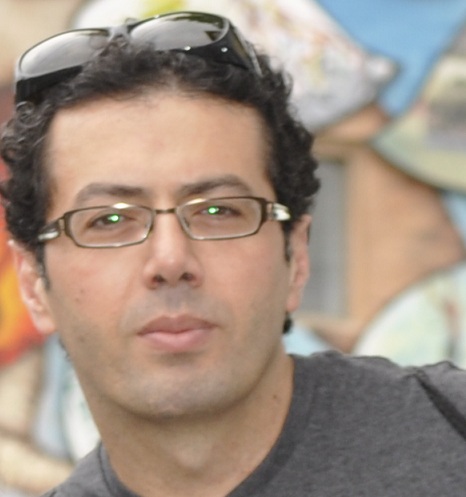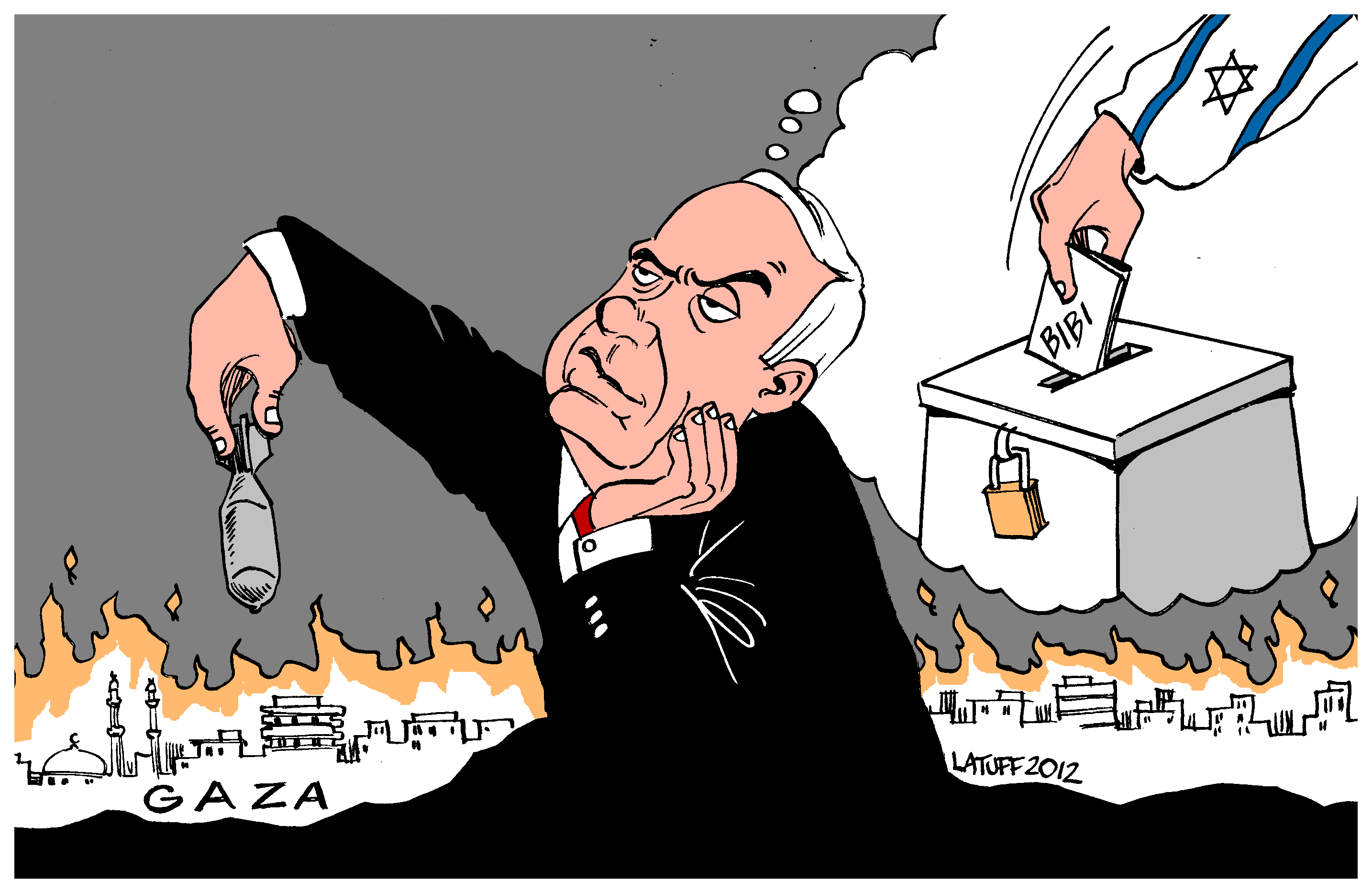www.aljazeerah.info
Opinion Editorials, August 2019
Archives
Mission & Name
Conflict Terminology
Editorials
Gaza Holocaust
Gulf War
Isdood
Islam
News
News Photos
Opinion Editorials
US Foreign Policy (Dr. El-Najjar's Articles)
www.aljazeerah.info
Clear and Decisive Win: Why Netanyahu Needs a War on Gaza More Than Ever Before By Ramzy Baroud Al-Jazeerah, CCUN, August 6, 2019 |
 |
 |
|
Media reports of an impending Israeli war on the besieged Gaza Strip are now a regular occurrence. The frequency of these reports fluctuates based on Israel’s own political landscape.
Empirical experience has taught us that when Israeli leaders are in trouble, they wage a war on Gaza. Now that Israeli Prime Minister Benjamin Netanyahu is facing the greatest challenge in his political career, Gaza is bracing for another Israeli war.
The war rumors are no longer just that. Rightwing Israeli newspaper, The Jerusalem Post recently reported that Israel’s military chief of staff, Lieutenant-General Aviv Kochavi, “has already approved operational combat plans and recently set up an administrative unit to handle the formation of a list of potential targets in the coastal enclave for when the next war breaks out.”
The Post’s own military correspondent, Anna Ahronheim concurs, that, indeed, war on Gaza “is not far away.” But unlike previous wars, the upcoming war must “have a clear and decisive win” by Israel so that “the other side will think twice about going to war in the future.”
The fallacy in Ahronheim’s analysis is obvious. Israel always approaches its wars in Gaza with the aim of having a “clear and decisive win”, aims that are often thwarted by strong Palestinian resistance in the besieged and impoverished Strip.
Second, Gaza never initiates wars. The Strip has no army or military strategy beyond self-defense tactics carried out by organized resistance factions, including Hamas, the Islamic Jihad and various PLO groups. However, if Israel thinks that a ‘decisive win’ would eradicate Palestinian resistance, it will be greatly disappointed. Gaza’s resistance, in all of its forms, against Israel and Israeli occupation goes back to the late 1940s. No amount of firepower will ever end this kind of determined resistance.
However, it is likely that Israel measures the decisiveness of its ‘victory’ based on the amount of destruction it is able to inflict on Palestinians.
Marvel at these numbers from the last major Israeli war on Gaza, in 2014, to understand the real target of Israeli wars on the Strip:
According to United Nations figures, more than 2,300 Palestinians were killed in Israel’s so-called “Operation Protective Edge”. The causalities, most of whom were civilians, included 551 children. Moreover, 11,231 were also wounded, and more than 20,000 homes were destroyed. The massive destruction was also aimed at the already ailing infrastructure of impoverished Gaza, reaching schools, hospitals, mosques and even UN shelters.
How more “decisive” must the next Israeli war be so that Israel’s warmongers may feel satisfied that their war achieved its intended objectives?
Israel wants Palestinians to accept their perpetual besiegement, embrace their fate as an occupied nation with no rights, subject to the whims of Israel and its racist, deadly policies.
However, Israeli leaders are now driven by a second objective: winning the upcoming elections.
There is much at stake for Netanyahu and his prospective coalition of rightwing ideologues and religious zealots. Israel has never held two national elections in one year, but this year is an exception.
The April 9 elections failed to achieve a decisive victory for either camp. After weeks of attempting to form a coalition government, Netanyahu accepted the inevitable: another election, which is set for September 17.
But Netanyahu is not only politically embattled. He, along with his family and close aides have been embroiled in a series of corruption charges that could potentially end his political career.
On June 6, Israel’s attorney general Avichai Mandelblit rejected Netanyahu’s bid to postpone for the second time the pre-indictment hearing in the several corruption cases concerning his misconduct while in office.
However, Netanyahu hopes to secure his position at the helm of Israeli politics a while longer, to evade corruption charges, and to eventually strike a deal to drop the charges altogether.
He is desperate to remain a prime minister. For that to happen, he will do whatever it takes to appeal to the most powerful constituency in Israel: the right wing and their religious allies.
For Israel’s right, a war is a normal state of affairs. They seem to acquire their sense of collective safety when Palestinians suffer. And, for months, Israeli rightwing voices calling for war against Gaza have massively amplified.
Even the supposedly sensible political center has joined the chorus, knowing that an anti-war stance in Israel is a losing strategy.
Head of Blue and White party, Benny Gantz, who remains Netanyahu’s strongest opponent said in an interview released last May with Channel 13: “We must strike hard, in an uncompromising manner .. We must restore the deterrence that has been eroded catastrophically for more than a year.”
Of course, there will be a next war on Gaza. It will be as “decisive” and deadly as Israeli leaders need it to be, to serve their political calculations.
But they must also be aware that wars on Gaza are no longer the cakewalks of the past. The resistance in that small, but unbreakable region, is tougher than it has ever been in the past, a natural outcome of 12 years of a relentless siege, interrupted by massively destructive and lethal military onslaughts.
A war on Gaza will also come with a price for Israel. Are Netanyahu and his government willing to endure the political fallout of another failed war? It all depends on how truly desperate corrupt Netanyahu is to remain in power and out of prison, at least for a while longer.
– Ramzy Baroud is a journalist, author and editor of Palestine Chronicle. His last book is ‘The Last Earth: A Palestinian Story’ (Pluto Press, London). Baroud has a Ph.D. in Palestine Studies from the University of Exeter and was a Non-Resident Scholar at Orfalea Center for Global and International Studies, University of California Santa Barbara. His website is www.ramzybaroud.net
***
Share the link of this article with your facebook friends
|
|
|
|
||
|
||||||


